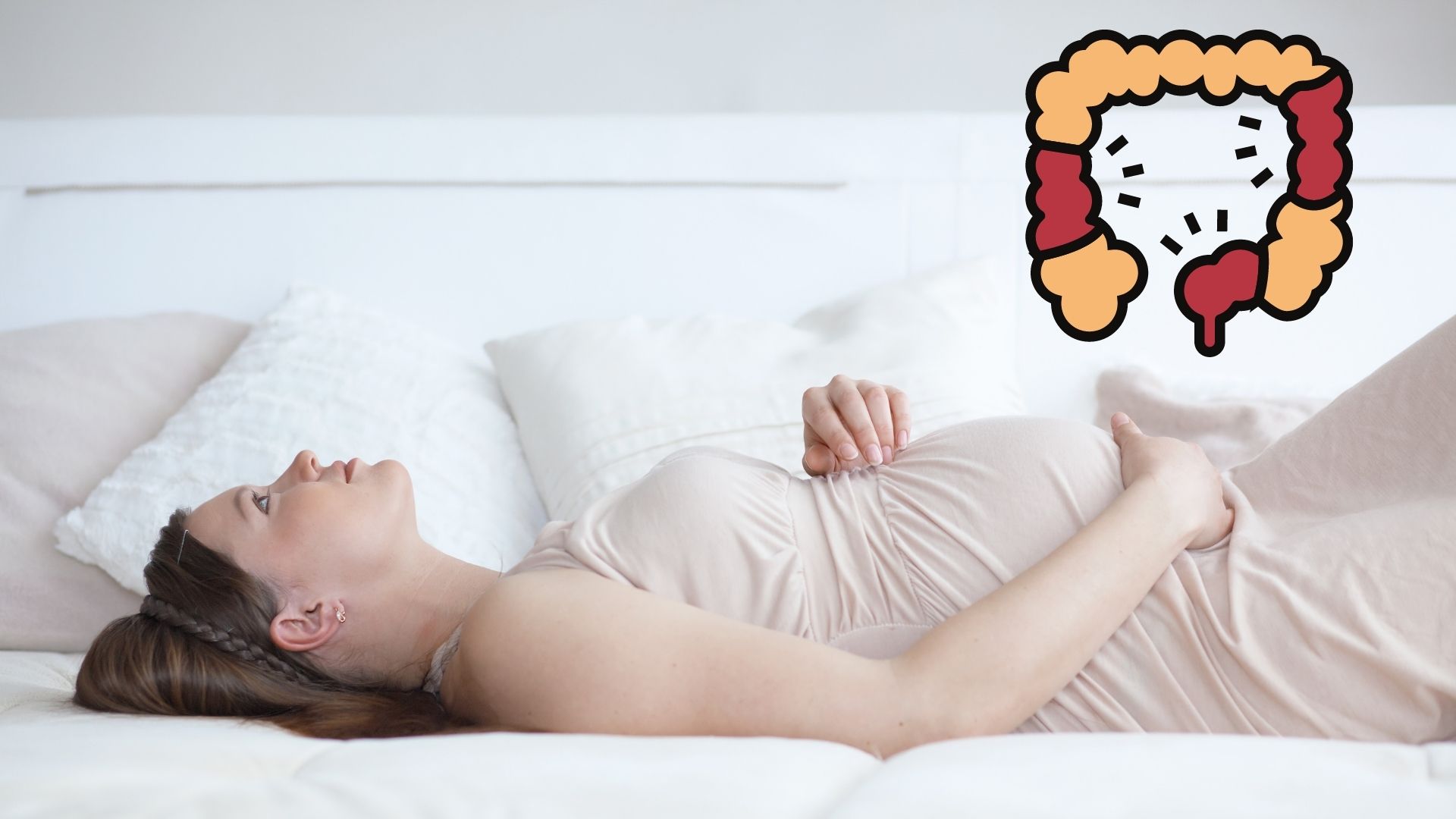80% of women suffer from Hemorrhoids and pregnancy, which in is caused by various physiological factors. Generally, during gestation, hemorrhoids can be frequent but mostly transient and disappear without leaving problems or damage.
Depending on their origin, hemorrhoids are divided into internal, positioned in the upper 2/3 of the anal canal, and external, i.e. located in the lower third of the anal canal (they can also affect the external anal orifice). Let’s see below why this disorder originates and how it can be treated.
What are hemorrhoids?
Hemorrhoids are ectasias, that is, pathological dilations of the hemorrhoidal plexus, a venous reticulum that serves to supply blood to the structures of the rectum responsible for the defecation process. During the puerperium or in pregnancy, external or internal hemorrhoids can be frequent but mostly transient and disappear without leaving any problems or damage. [1]
Hemorrhoids and pregnancy: the causes
It is estimated that about 80% of women suffer from Hemorrhoids and pregnancy. The causes of hemorrhoids in pregnancy depend on several factors but they are in any case all physiological and normally present in every gestation. Among them we find:
- The increase in pelvic pressure due to the crushing of the portal vein and rectal and anal veins by the pregnant uterus;
- hormonal changes, the high presence of estrogen and especially progesterone, which causes laxity of the blood vessel walls;
- constipation during pregnancy which can be complicit in the formation of anal varices;
- a diet low in water and fiber;
- limited physical activity;
- obesity (it is estimated that a weight greater than 30% compared to the ideal weight increases the risk of haemorrhoidal crisis by 10 to 20%);
- a prolonged expulsive phase of childbirth labor;
- multiparity, which increases the risk of hemorrhoids by about 30%.
Symptoms of hemorrhoids
Symptoms of hemorrhoids also vary according to the local state of health a woman has prior to becoming pregnant. If haemorrhoidal disorders are already present before pregnancy, the symptoms will tend to present earlier and with worsening characteristics.
More normally, the symptoms appear in the third trimester of pregnancy, or after delivery, as a consequence of the pressure of the baby or vaginal delivery.
Burning, pain, itching, swelling, a sense of heaviness in the anal area are very common symptoms, as it is possible to have bleeding hemorrhoids during pregnancy, or the presence of blood after evacuation.

Remedies for hemorrhoids in pregnancy
What to do for hemorrhoids in pregnancy? The most useful natural remedies to consider are undoubtedly related to prevention. Hemorrhoids are prevented by keeping weight gain under control, following a diet rich in water and fiber to prevent constipation, practicing physical activity and always keeping the perianal area clean.
Hemorrhoids in pregnancy: how to cure them?
There is no need to rely on grandma’s remedies for hemorrhoids in pregnancy. When the symptoms become important and affect normal daily activities, it is necessary to resort to treatments, which vary from oral administration of drugs or supplements, local ointments or, when necessary, surgery.
A study highlighted the benefits of taking rutoside with a significant improvement in symptoms. [2] It is a flavonoic glycoside present in some plants belonging to different families, especially the Rutaceae, from which it takes its name. It is found in the form of a dietary supplement and, although there are no associated contraindications, it is always recommended to seek the advice of the professional who follows the pregnancy before starting therapy.
Cream for hemorrhoids in pregnancy
It may be useful to make moist warm compresses after evacuation to limit the painful sensation of hemorrhoids and pregnancy, or to apply locally a witch hazel ointment, a calendula ointment with two drops of Swedish Amaro or a zinc oxide ointment with function of calming.
Aloe vera gel can be used to calm inflammation and decrease bleeding. The topical use of colostrum-based compounds (one application three times a day) was found to be very effective thanks to the presence of immunoglobulins, cytokines, lysozyme, lactoferrin and thanks to its bacteriostatic properties. [3]
Also excellent preparations and ointments that contain flavonoids and horse chestnut derivatives, even with associated local and oral therapy, because they improve the tone of the smooth muscles that form the blood vessels. If the symptoms persist, a visit to the proctologist specialist is useful because it is necessary to evaluate the possibility of conservative pharmacological therapy (local and / or oral) or if surgical therapy is necessary.
Generally, surgical therapy should never be considered during pregnancy, because hemorrhoids tend to recur spontaneously once the baby is born. A post-partum checkup is therefore useful to assess the local state, associated disorders and any improvement in symptoms.






